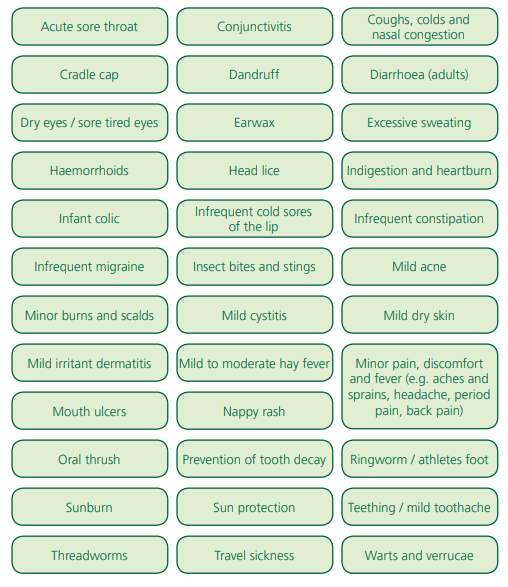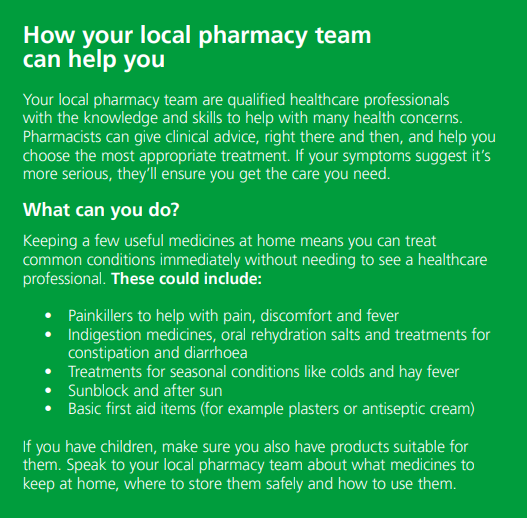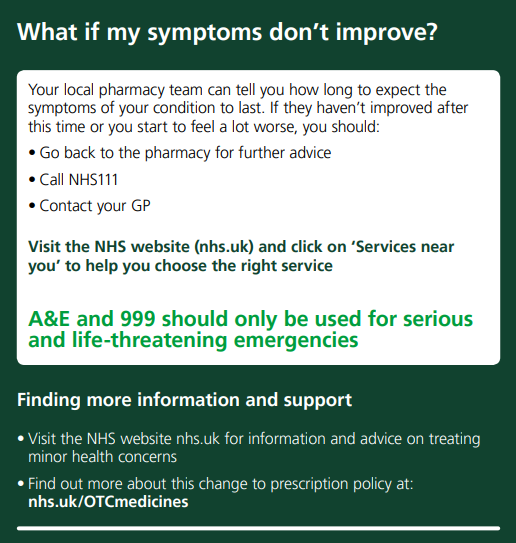Over The Counter Medicines
Prescribing of over the counter medicines is changing
Your GP, nurse or pharmacist will not generally give you a prescription for over the counter medicines for a range of minor health concerns.
Instead, over the counter medicines are available to buy in a pharmacy or supermarket in your local community.
The team of health professionals at your local pharmacy can offer help and clinical advice to manage minor health concerns and if your symptoms suggest it’s more serious, they’ll ensure you get the care you need.
Please help the NHS to use resources sensibly.
Your GP, nurse or pharmacist will not generally give you a prescription for certain medicines that are available to buy in a pharmacy or supermarket, even if you qualify for free prescriptions. This applies to treatments for the conditions opposite.
GPs, nurses or pharmacists will also generally no longer prescribe probiotics and some vitamins and minerals. You can get these from eating a healthy, varied and balanced diet, or buy them at your pharmacy or supermarket.

Why does the NHS need to reduce prescriptions for over the counter medicines?
The NHS has been spending around £136 million a year on prescriptions for medicines that can be bought from a pharmacy or supermarket, such as paracetamol. By reducing the amount the NHS spends on over the counter medicines, we can give priority to treatments for people with more serious conditions, such as cancer, diabetes and mental health problems.
Exceptions to the new prescription rules
You may still be prescribed a medicine for a condition on the list if:
- You need treatment for a long-term condition, e.g. regular pain relief for chronic arthritis or inflammatory bowel disease.
- You need treatment for more complex forms of minor illnesses, e.g. migraines that are very bad and where over the counter medicines do not work.
- You need an over the counter medicine to treat a side effect of a prescription medicine or symptom of another illness, e.g. constipation when taking certain painkillers.
- The medicine has a licence which doesn’t allow the product to be sold over the counter to certain groups of patients. This could include babies, children or women who are pregnant or breast-feeding.
- The person prescribing thinks that a patient cannot treat themselves, for example because of mental health problems or severe social vulnerability.


Page created: 03 January 2023